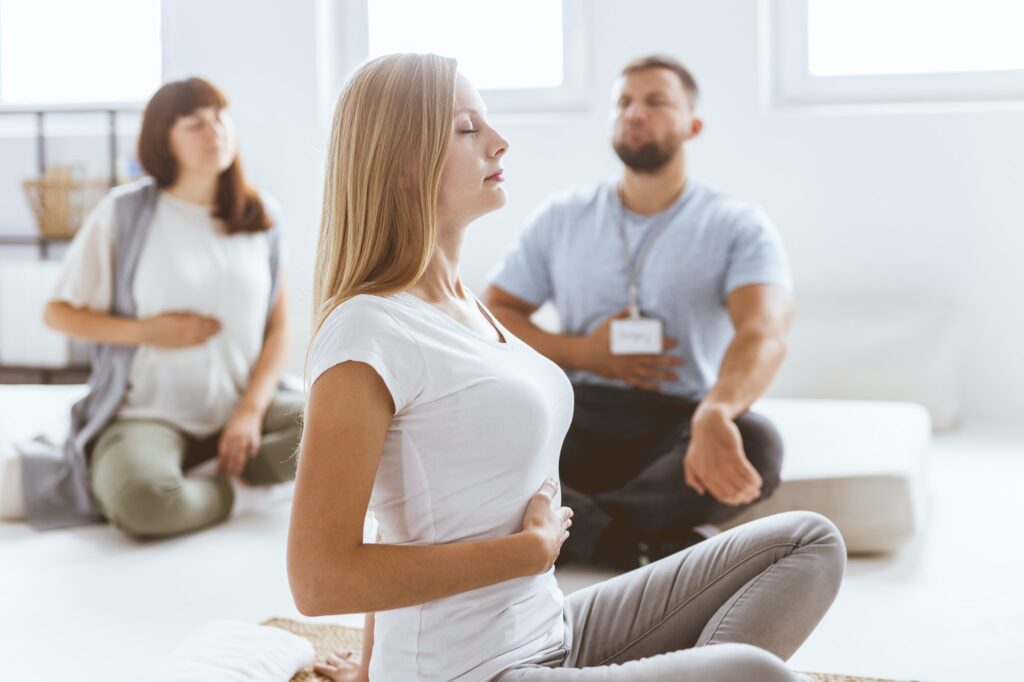This post is a guest submission. Please see our Disclaimer, Disclosures, & Affiliate Notice for details.
In today’s world, we often face various stressful situations. These situations range from minor annoyances to much more serious worries like loved ones’ illnesses or death. Regardless the reason, stress floods the body with hormones – the breathing speeds up, heart pounds, and muscles tense. This condition is called “stress response”, and this is a normal reaction to unpleasant or threatening events.
We can’t avoid challenging situations and all sources of stress in our lives, however we should develop healthy ways to respond to them. In other words, we have to learn to relax effectively to combat stress.
Here, we’ve consolidated well-tried, quick relaxation tips. They’ll help to reduce stress and anxiety, boost your mood, and improve your overall well-being.
Mind your Diet and Nutrition when Stressed
When stress strikes, we should pay attention to our diet and nutrition! That’s because our bodies release the hormones insulin, cortisol, and ghrelin that can increase hunger and cravings for unhealthy food. If the stressful situation continues, hormonal changes can lead to a condition called leptin resistance which is linked to obesity. Tasty and healthy food will fuel you up, help you relax, and get your stress under control.
Here’s what to include in your diet:
- Warm, soothing drinks, e.g., green tea, chamomile, lavender, milk
- Whole-grain carbohydrates, e.g., whole-grain bread, quinoa, brown rice, oats
- Dark chocolate
- Bananas
- Fatty fish
- Nuts
- Oranges and other vitamin-C-rich fruits
- Avocados
- Leafy greens
Avoid the following foods and drinks when stressed:
- Caffeine
- Alcohol
- Refined sugar
Eat mindfully, it’ll not only improve your health but also reduce stress.

Breath Deeply
One of the most effective relaxation tips for anxiety reduction is deep breathing, it slows the heart rate and lowers blood pressure.
This practice will take you only 5 minutes or even less. Sit up straight, or lie down, eyes closed, a hand on the belly and focus on your breathing. Take a deep breath through the nose, feel the breath start in your stomach and move towards the top of your head. Reverse the process by exhaling through the mouth.
Practice Meditation
A few minutes of meditation will make you more resilient to stress and help ease anxiety. It produces a deep state of relaxation, reduces the stream of jumbled thoughts that crowd your mind and cause stress. Regular practice can enhance physical and emotional well-being.
There are lots of types of meditation that have a common goal of achieving inner peace, however, it’s only up to you which one to choose.
Here are some ways to meditate:
- Imagery or visualization
- Mantra meditation
- Mindfulness meditation
- Transcendental meditation
- Yoga
- Tai chi
- Qi gong
You can find online guides on most of these practices, so you have a brilliant opportunity to perform them at the comfort of your home.
Body Scan
Another great relaxation tip for stress relief is body scan. This practice combines progressive muscle relaxation with breath focus and can help improve your awareness of the mind-body connection. After several minutes of deep breathing, concentrate on one group of muscles or a particular body part at a time. Then mentally release any physical tension you feel there.
Repeat a Prayer
This quick relaxing technique will be especially appealing to you if spirituality or religion are meaningful to you. All you need to do is simply repeat – quietly or loudly – a short prayer or phrase from a prayer, practicing the breathing technique.
Stay Active – Exercise
Exercising is one of the best ways to combat stress. People who workout regularly are less likely to experience anxiety than those who don’t workout. That’s because physical activity lowers stress hormones and releases endorphins – well-known mood-booster. Besides, regular exercise improves your sleep patterns that can be negatively impacted by stress and anxiety.
The best activities to combat stress are those that involve repetitive movements of large muscle groups, e.g. walking, jogging, dancing.
We hope that our simple, yet effective relaxation tips will help you relieve stress and anxiety. Find several techniques that resonate with you, fit your lifestyle and good results will not be long in coming.
Kevin has been writing content for about 3 years. He really wants to share his experiences and advice with anyone who cares about health and fitness. He enjoys helping people achieve their fitness goals with simple instructions and overcoming any obstacles on the way.

